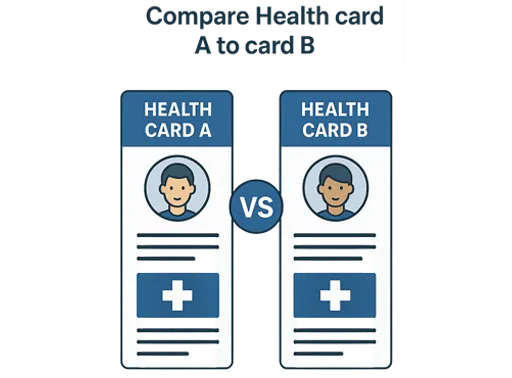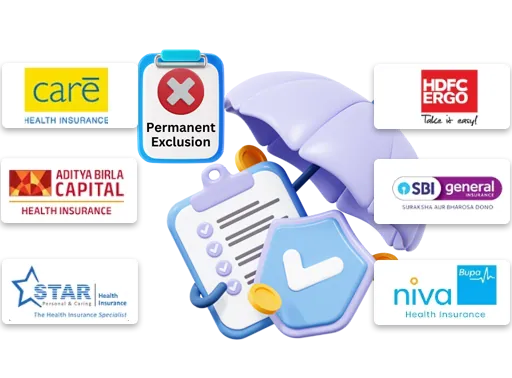Single Premium in Health Insurance




Simran has over 4 years of experience in content marketing, insurance, and healthcare sectors. Her motto is to make health and term insurance simple for our readers has proven to make insurance lingos simple and easy to understand by our readers.
Reviewed By:

Anchita has over 6 years of experience in content marketing, insurance, and healthcare sectors. Her motto to make health and term insurance simple for our readers has proven to make insurance lingos simple and easy to understand by our readers.
Updated on Jul 09, 2025 2 min read
What is Single Premium Health Insurance?
In health insurance, you get many options to pay premiums. You can pay it on a monthly, quarterly, annually, bi-annually, or tri-annually basis. A single premium in health insurance means you need to pay the entire policy term cost of your coverage upfront with one lump sum payment.
How Single Premium in Health Insurance Works?
In a single premium, you do not need to spread out the payment over time. Just pay the entire cost in one go.
Once you pay the premium, you will be covered for the entire policy period, same as the traditional health insurance. In this case, you do not need to worry about the monthly or yearly premium payments.
What are the Benefits of Single Premium Options?
- The single premium option is good if you do not want to get stuck in the month's payment option.
- If you travel a lot then this is perfect for you.
- If you do not want to remember the premium payment dates.
- If your salary or income is stable and has a lot of idle money, then it is a good option.
- You do not want to worry about the policy lapse.
Is Single Premium Health Insurance a Good Option for Me?
You might be getting this question in your mind, 'Whether opting for a single premium in health insurance is good for me or not?' So, let me give you the answer:
Single-premium health insurance can be good or bad according to your situation. Here are both the situations below.
| Good Fit for You | Not Ideal for You |
| If you have a lot of money at your disposal. | If you are tight on budget. |
| If you do not like to manage bills, multiple times. | If you want flexibility with the coverage or benefits. |
| When you want stress relief by paying the premiums in one go. | If you prefer to invest elsewhere. |
| If you have a stable income source for the rest of the policy tenure. | Have an unpredictable source of income. |
Tax Benefits for Single Premium Mediclaim Policy
Even though you opt for the single premium for your health insurance plan, you are still eligible for tax deduction under Section 80D of the Income Tax Act of 1961. The deduction amount is, however, calculated by dividing the total premium by the number of years this policy is valid.
Bottom Line
All in all, a single premium in health insurance is in a way beneficial if you have enough amount that will not hamper your overall budget. If you want to check the premium amount for any health plan, please check out our Premium Calculator - a FREE tool to help you calculate your exact premium amount. This will make budgeting and planning for future finances way more efficient and accurate.
Consult for Personalized Insurance Advice

But how does it work?
Schedule a call with India’s number 1 trusted advisor with a 4.5+ rating on Google. We are not your average insurance agents. Our advisors are experts in their insurance knowledge and will give you the right information at the right time. The service is free of cost! Don’t worry, we won’t spam as we value your time.
Health Insurer Network Hospitals
Single Premium in Health Insurance: FAQs
1. Is there any minimum amount required for a single premium payment?
Yes, a minimum amount is required depending on the insurance company and the coverage you have chosen.
2. Will I be able to save money if I opt for a single premium?
Yes, if you opt for a single premium, the total amount will be less than what you& 039;ll pay monthly.
3. What if I need to cancel my single premium plan?
Cancelling a single premium health insurance plan is usually difficult. Some plans might offer a partial refund.
4. What if my health requirements change during the policy term?
Usually, single premium plans usually lock you into the chosen coverage for the entire term.
5. Is my single premium tax-deductible?
Yes, the single premium is tax deductible under Section 80D of the Income Tax Act of 1961.
Health Insurance Companies
Know More About Health Insurance Companies

















